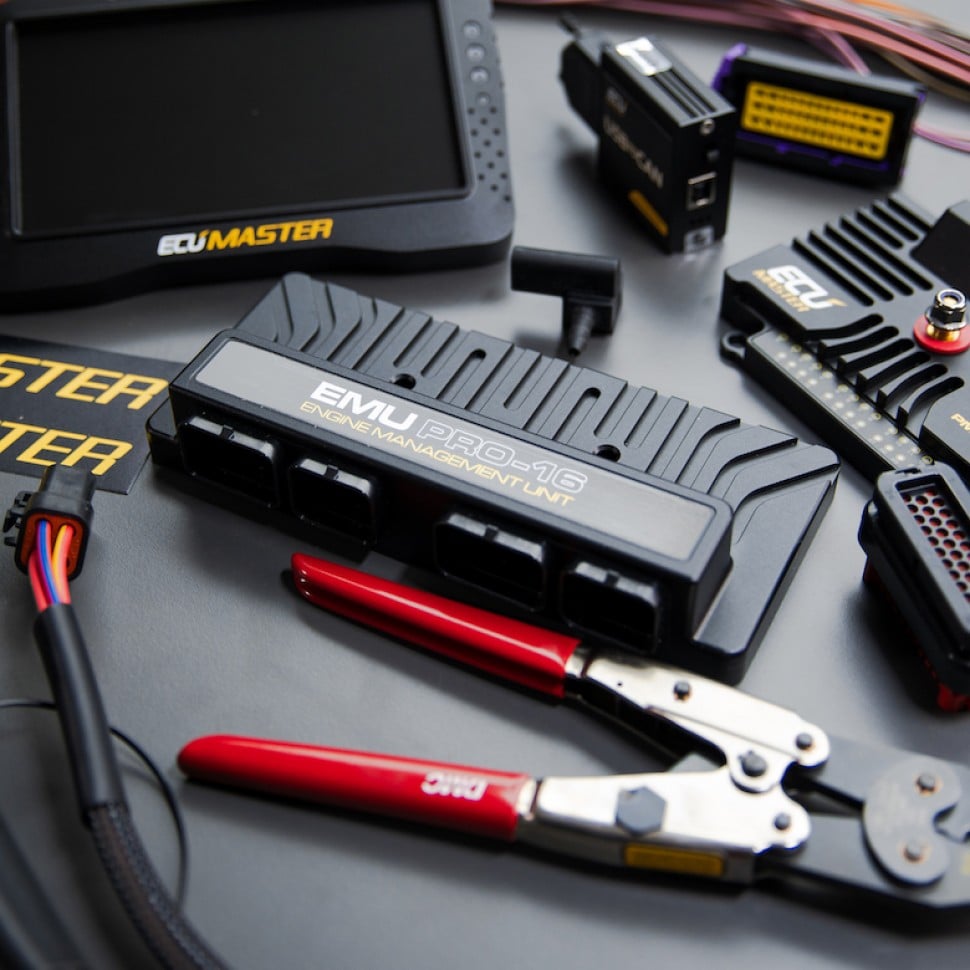| 00:00 |
- One of the problems with diesel engines is the harsh knocking noise that normally goes hand in hand with these engines.
|
| 00:06 |
Particularly as we've seen diesel engines become adopted for use in high end passenger cars, this knocking sound is deemed unacceptable by the motoring public, and we've seen considerable development with modern electronically controlled diesel engines to help reduce if not completely eliminate the knocking sound.
|
| 00:25 |
The knocking sound is caused by the premixed combustion phase of the combustion process which was described in the previous module.
|
| 00:32 |
You'll recall that during the ignition delay period, the injected fuel will mix with the high temperature intake air, as the physical and chemical processes take place prior to the initiation of combustion.
|
| 00:44 |
When combustion does begin, all of premixed fuel and air burns very rapidly and releases its energy quickly resulting in a sharp rise in the heat and pressure inside the combustion chamber.
|
| 00:57 |
Let's take the heat release graph we looked at in the last module and now overlay the cylinder pressure on top of this graph.
|
| 01:04 |
We can see that the pressure in the cylinder naturally rises prior to combustion as the air in the cylinder is compressed as the piston moves towards top dead centre.
|
| 01:15 |
After the ignition delay period we see the large spike in the heat release, and this is followed by a sharp increase in the pressure inside the cylinder.
|
| 01:23 |
It's the sharp increase in the pressure gradient that leads to the knocking noise that we can audibly hear.
|
| 01:30 |
In order to reduce diesel knock, it's essential to reduce the ignition delay since it's during this time that the fuel and air become premixed.
|
| 01:39 |
The shorter the ignition delay, the less premixed fuel and air there is available to combust when the combustion process is initiated.
|
| 01:48 |
There are a variety of physical factors that can affect the ignition delay, and hence impact on the level of diesel knock present.
|
| 01:56 |
It has been found through experimentation that the minimum ignition delay will be found when the injection events start approximately 10 to 15 degrees before top dead centre.
|
| 02:08 |
If the injection event happens earlier or later than this, then the cylinder temperature and pressure is reduced and the ignition delay tends to increase.
|
| 02:17 |
We also need to consider the effect of engine load on the ignition delay.
|
| 02:22 |
As we reduce load on the engine, we lean the air fuel ratio and hence the combustion temperature decreases, which in turn cools down the internal components within the cylinder such as the piston crown and the cylinder walls.
|
| 02:36 |
Since it's the temperature primarily that initiates the combustion process, the cooler operating conditions under light load result in an increase in the ignition delay.
|
| 02:47 |
Diesel knock is most obvious at light load such as idle for this reason.
|
| 02:52 |
The injection itself can have a modest effect on the ignition delay, and the general trend we see is that an increase in injection pressure can show a small reduction in ignition delay.
|
| 03:04 |
With this in mind, there's little we can do with the main injection event to significantly reduce ignition delay and hence eliminate diesel knock.
|
| 03:12 |
Beyond these factors we also need to consider the operating conditions such as the inlet air temperature, as reducing this has the effect of increasing the ignition delay also.
|
| 03:24 |
Lastly there are the engine's mechanical design aspects such as the combustion chamber design, injector location, spray pattern, and swirl rate to name just a few.
|
| 03:34 |
Obviously from a tuner's perspective though we have little control over many of these aspects.
|
| 03:40 |
The technique that's employed by OE manufacturers to reduce the ignition delay is to introduce pilot injection events which we'll discuss in the next module.
|





